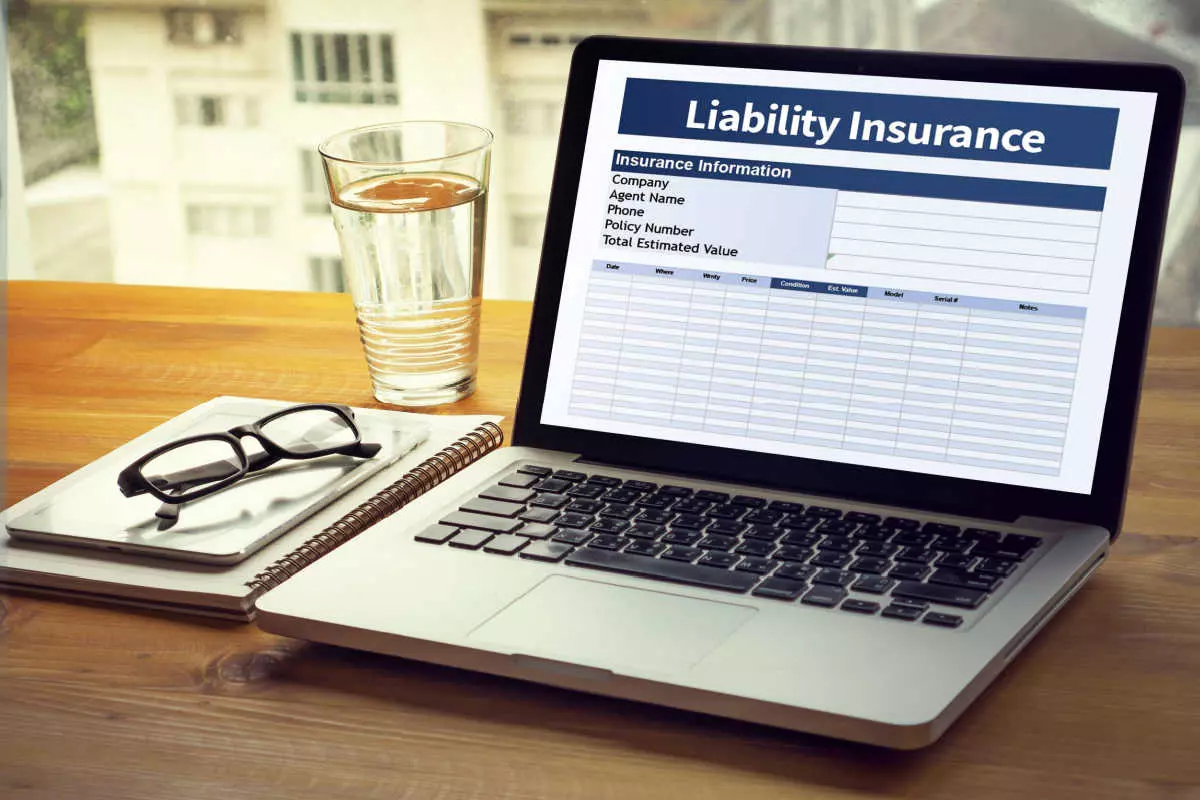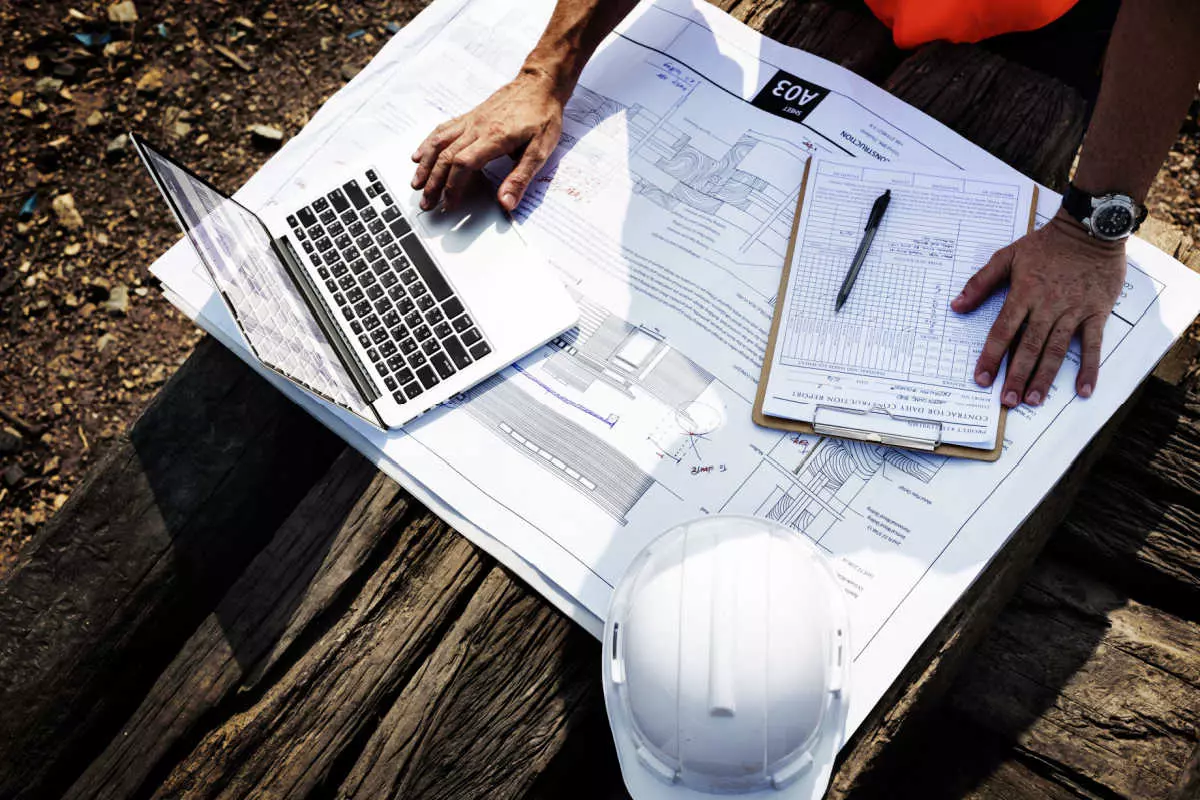Table of Contents
- California Contractor License Requirements
- Types of Contractor Licenses in California
- Steps of Getting a Contractors License in California
- How Much Does It Cost to Get a California General Contractor License?
- How Long Does It Take To Get a General Contractor License in California?
- Who Needs a Contractors License in California?
- Why You Need a Contractor’s License in California
- How to Transfer a License From Another State
- How to Renew Your Contractor License in California
- Conclusion
Are you looking to become a licensed general contractor in California? As a contractor, you will be responsible for overseeing and managing construction projects, and a license is required to legally perform this work in California. This article will cover everything you need to know about obtaining a general contractor license in CA, including the requirements, application process, associated costs, and renewal process.
California Contractor License Requirements
If you aspire to become a licensed general contractor in California, you must familiarize yourself with the requirements. We’ve compiled a list of qualifications you need to get a general contractor’s license in California:
Qualifications:
- Must be at least 18 years old
- Must have a valid Social Security number (SSN) or Individual Taxpayer Identification Number (ITIN)
- Must have a valid driver’s license or state ID from the California Department of Motor Vehicles (DMV)
Education:
- Must have a minimum of four years of experience in the construction trade
- Must have completed at least 32 hours of coursework in specific construction-related topics from an approved institution
Experience:
- Must have at least four years of journey-level experience in the construction trade within the last 10 years. Journey-level experience means that the applicant has acquired the skills and knowledge necessary to perform the work of the trade.
Other Requirements:
- Must not have any outstanding judgments, liens, or unpaid taxes
- Must have workers’ compensation insurance if hiring employees
- Must have a bond in place before applying for the license
- Must get fingerprinted and undergo a background check

Note that the education and experience requirements vary based on the specific type of contractor license you are applying for. Let’s take a look at those, as well.
Types of Contractor Licenses in California
In California, there are three different types of contractor licenses: Class A, Class B, and Class C. Here’s a brief overview of each license type:
Class A Contractor License
This license allows contractors to work on projects worth $500,000 or more, including labor and materials. Class A contractors can work on various projects, including commercial and residential buildings, highways, and bridges. To qualify for a Class A license in California, you must have at least four years of experience in the construction industry and at least 32 hours of formal education on construction topics.
Class A contractors are authorized to take on general engineering projects. This classification includes the construction, alteration, and repair of fixed works requiring specialized engineering knowledge and skill, such as waterways, power plants, airports, and more. Class A contractors can also work on projects involving framing, excavation, and other general engineering-related tasks.
Class B Contractor License
This license allows contractors to work on projects with a total value of $10,000 or more, including labor and materials. Class B contractors can work on most construction projects, but their scope is generally limited to a single trade or a group of related trades. To qualify for a Class B license, you must have a minimum of four years of experience in the construction industry and at least 16 hours of formal education on construction topics.
Class B contractors can specialize in general building construction or individual trades, such as building residential, commercial, and industrial projects. They may also coordinate subcontractors and perform tasks like framing, roofing, plumbing, electrical work, and more. Additionally, Class B contractors can focus on specific trades such as plumbing, electrical, HVAC, and other specialized areas within the construction industry.
Class C Contractor License
This license allows contractors to work on projects valuing less than $10,000, including labor and materials. Class C contractors are typically limited to working on small projects like home repairs or minor renovations. There are no formal education requirements for a Class C license, but you must still have a minimum of four years of experience in the construction industry.
Class C contractors can fall under approximately 45 specialized trade classifications, including landscaping, insulation, drywall, painting, flooring, and more.
Steps of Getting a Contractors License in California
Obtaining a general contractor license in California involves a comprehensive process that ensures contractors meet the necessary qualifications and requirements.
From gaining relevant experience and education to passing exams and submitting applications, here is our detailed breakdown:
1. Determine Your CA License Classification
The first step is determining which license class you want to obtain. The California Contractors State License Board (CSLB) offers 44 classifications for general contractor licenses, ranging from general engineering contractors to specialty trades contractors, so choose the appropriate one based on the type of work you intend to do. Each category has its own requirements for experience and education.
2. Meet the California Contractor License Requirements
To be eligible for a general contractor license in California, you must be 18 years old, have a valid Social Security number or Individual Taxpayer Identification Number, and have at least four years of journey-level experience in your chosen classification. Journey-level experience is defined as full-time experience in the trade, either as a journey-level worker, foreman, supervisor, or contractor.
3. Obtain a Surety Bond or Cash Deposit
To protect consumers against any financial loss from your work as a contractor, you must obtain a surety bond or cash deposit.
A surety bond or cash deposit is a financial requirement imposed by the California Contractors State License Board as part of the licensing process for contractors in the state. It is a form of financial security that contractors must acquire to protect consumers and ensure compliance with contractual obligations.

A surety bond is a contract between three parties: the contractor (principal), the surety company (guarantor), and the entity requiring the bond (obligee), which is usually the CSLB. The surety bond guarantees the contractor will fulfill their contractual obligations, including completing the work according to specifications, complying with regulations, and addressing any potential financial damages resulting from the contractor’s actions or non-compliance.
In the case of a valid claim, the surety company will compensate the harmed party up to the bond amount, and the contractor is then responsible for reimbursing the surety. The bond amount varies based on your classification, ranging from $15,000 to $25,000. The bond must be obtained from a surety company licensed in California.
4. Submit Your License Application
Once you have determined your classification and met the eligibility requirements, you can submit your application online or by mail. You will need to provide personal and business information, as well as documentation of your work experience and education. The California Contractors State License Board will review your application and notify you if additional information is needed.
5. Pass the Licensing Exam
To pass the licensing exam in California, applicants must complete two parts: a business and law exam and a trade exam specific to their chosen classification. The business and law exam covers business practices, labor laws, contracts, and regulations relevant to the construction industry. The trade exam assesses the technical knowledge and proficiency in the specific trade, such as plumbing, electrical work, or carpentry.
According to the information provided by California Contractors Licensing, the exams are administered by a third-party testing agency, PSI Exams. Applicants typically take the exams at designated testing centers. The business and law exam consists of multiple-choice questions designed to evaluate the understanding of legal and administrative aspects of contracting. The trade exam assesses the applicant’s knowledge through multiple-choice questions and practical, hands-on sections.
It’s advisable for individuals preparing for the licensing exam to refer to the official resources provided by the California Contractors State License Board and the testing agency for the most accurate and up-to-date information.
6. Undergo a Background Check
To ensure that you do not have any criminal history that disqualifies you from obtaining a license, you must get fingerprinted and undergo a background check. The California Contractors State License Board will provide you with instructions on getting fingerprinted, which typically involves visiting a Live Scan center and paying a fee.
7. Pay the Licensing Fee
After passing the licensing exams and completing the fingerprinting and background check, you must pay the licensing fee. The fee varies based on classification, ranging from $200 to $500.
8. Obtain Insurance
Liability insurance and workers’ compensation insurance are required for all licensed contractors in California.
Liability insurance protects contractors and their clients against accidents or damages on the job. It provides financial coverage for property damage, bodily injury, or other liabilities arising from the contractor’s work. For example, if a contractor accidentally damages a client’s property during a construction project, liability insurance can help cover the costs of repairs or replacements. It also safeguards contractors from potential lawsuits resulting from accidents or negligence.

Workers’ compensation insurance is designed to provide benefits to employees in the event of work-related injuries or illnesses. It protects employees by providing medical expenses, wage replacement, and other related benefits if they suffer injuries or become ill while performing job duties. Workers’ compensation insurance is intended to ensure that employees receive necessary medical care and financial support, while also protecting employers from potential lawsuits related to workplace injuries.
You must provide proof of liability and workers’ compensation insurance to the California Contractors State License Board before your license can be issued.
9. Receive Your CA Contractor License
If you meet the requirements mentioned above, the California Contractors State License Board will approve your contractor’s license. Your license will be valid for two years and must be renewed before it expires. You must also comply with all laws and regulations governing the construction industry in California, including obtaining permits and inspections for all work performed.
How Much Does It Cost to Get a California General Contractor License?
The cost to obtain a California general contractor license can vary depending on several factors, including the classification of the license and the specific fees associated with each step of the application process. Here is a breakdown of the typical costs you can expect:
- Application Fee: The application fee for a California General Contractor License is $450.
- Surety Bond: A surety bond is required as part of the licensing process, and the amount varies depending on the classification of the license. The bond cost can range from $15,000 to $25,000 per year, depending on your credit score and other factors.
- Examination Fee: The California General Contractor License examination costs $60 for the Law and Business exam and $60 for the Trade exam. If an individual fails the California General Contractor License examination and needs to retake it, they must pay the examination fee again.
- Fingerprinting and Background Check Fee: The fee for fingerprinting and the associated background check is $49.
- Liability Insurance and Workers’ Compensation Insurance: Liability insurance and workers’ compensation insurance are required for all licensed contractors in California.
Insurance costs can vary depending on the size of your business and the type of work you perform, but the cost ranges between hundreds to thousands annually. While it is challenging to provide an exact figure without specific details, it is possible to provide a general range to give you an idea.
For smaller businesses or sole contractors, liability insurance costs can typically range from a few hundred to a few thousand dollars per year. The exact cost within this range depends on factors such as the level of coverage required, the scope of your operations, location of your business, and your claims history.
For larger businesses with more extensive operations, the cost of insurance tends to increase. These businesses may require higher coverage limits, have larger annual revenues, or engage in higher-risk activities, leading to higher insurance premiums. In such cases, insurance costs can range from several thousand to tens of thousands per year.
How Long Does It Take To Get a General Contractor License in California?
Obtaining a general contractor license in California can take several months or up to a year, depending on several factors. To get started, you must determine your eligibility for your desired license type.
Once you have determined your eligibility, you must obtain a surety bond or cash deposit, which typically takes a few days to a week. After that, you will need to submit your application to the California Contractors State License Board. The CSLB reviews applications in the order they’re received, and typically takes four to six weeks to process an application.
If your application is approved, you must pass a licensing exam, which is typically scheduled two to four weeks after your application is approved. It may take you several weeks to prepare for the exam. Once you pass the exam, you must get fingerprinted and undergo a background check, which can take several days to a week.

You will also need to obtain liability insurance and workers’ compensation insurance, which can take several weeks to several months, depending on the size of your business and the type of work you perform.
The process of obtaining liability insurance typically involves researching and comparing insurance options, obtaining quotes, and completing the necessary paperwork. The timeline for getting liability insurance can range from a few days to a few weeks, depending on the complexity of your business operations and the specific requirements of the insurance provider.
If you are a sole contractor operating your business without any employees, the timeline for obtaining liability insurance and workers’ compensation insurance can be relatively shorter compared to larger companies with employees. As a sole contractor, you may only need to obtain liability insurance, which typically covers damages or injuries that may occur during your work.
Finally, once you have completed all the steps and requirements, you will receive your General Contractor License from the CSLB. The processing time for issuing licenses can vary depending on the backlog of applications and other factors, but it typically takes several weeks to several months.
Who Needs a Contractors License in California?
In California, anyone who wants to work as a contractor must obtain a contractor’s license. The type of license needed depends on the specific nature of the contracting work. There are two main categories: general contractors and specialty contractors. General contractors handle a wide range of construction projects, while specialty contractors focus on specific trades or areas, such as plumbing, electrical work, landscaping, or painting.
For example, within the specialty contractor category, there are licenses for specific trades like HVAC (heating, ventilation, and air conditioning), roofing, flooring, and more.
A license is required by law to ensure contractors have the necessary skills and knowledge to perform quality work and protect consumers. Without a CA contractor’s license, contractors risk being fined and penalized by the state and may be barred from legally operating their businesses.
Why You Need a Contractor’s License in California
Without a valid California contractor’s license, contractors may face legal penalties, fines, or even jail time for performing construction work. In addition to the legal requirements, a California contractor license can also provide credibility and trustworthiness in the eyes of potential clients. A license demonstrates the contractor has met the necessary qualifications and has the knowledge and experience to perform quality work.
How to Transfer a License From Another State
If you have a general contractor license from Arizona, Nevada, or Louisiana, you can confirm you qualify to transfer your license to California by checking that your specific classification appears in California’s Reciprocal Classifications List.
If your Arizona, Nevada, or Louisiana license qualifies, and you’ve held an active license in good standing for the past five consecutive years, you may apply for reciprocity through a License Verification Request. Upon approval by the California Contractors State License Board, you must show proof of bond or cash deposit, liability and workers’ compensation insurance, and pay all applicable fees.

Because transfer applicants receive an exemption from the trade exam requirement, this process is typically faster than applying for an original CA general contractor license. However, the CSLB still requires transfer applicants to pass the business and law exam to ensure they’re familiar with state-specific requirements.
How to Renew Your Contractor License in California
In California, contractor licenses must be renewed every two years. Here are the steps to renew your contractor license in California:
- Receive Renewal Notification: The California Contractors State License Board will send you a renewal notice approximately 60 days before your license expiration date. Keep your contact information up-to-date with the CSLB to ensure you receive this notice.
- Complete Required Continuing Education: To renew your license, you must complete a certain number of hours of continuing education. The specific type of continuing education varies depending on the trade and classification of your contractor’s license. Continuing education courses may cover construction laws and regulations, building codes, safety practices, business management, contract administration, and industry-specific updates and advancements.
- Submit Renewal Application and Fee: Once you have completed the required continuing education, you can submit your renewal application and fee to the CSLB. The renewal fee varies depending on your classification of license.
- Provide Updated Information: When renewing your license, you must provide updated information about your business, including any changes to your business name, address, or contact information.
- Verify Workers’ Compensation Insurance: All licensed contractors in California must have workers’ compensation insurance. When renewing your license, you will need to verify you have the required insurance coverage.
- Wait for Renewal Confirmation: After you submit your renewal application and fee, the CSLB will process your application and notify you when your license has been renewed. It typically takes several weeks to process a renewal application.
Conclusion
Obtaining a general contractor license in California is a necessary legal requirement for anyone who wants to work in the construction industry. By following the steps listed above, you can ensure you’ve met the necessary requirements for obtaining a license, such as education, experience, and bond or cash deposit.
Getting a general contractor’s license can not only protect contractors from legal penalties and fines but also serves as a powerful tool to showcase credibility, trustworthiness, and expertise to potential clients.
Table of Contents
- California Contractor License Requirements
- Types of Contractor Licenses in California
- Steps of Getting a Contractors License in California
- How Much Does It Cost to Get a California General Contractor License?
- How Long Does It Take To Get a General Contractor License in California?
- Who Needs a Contractors License in California?
- Why You Need a Contractor’s License in California
- How to Transfer a License From Another State
- How to Renew Your Contractor License in California
- Conclusion


